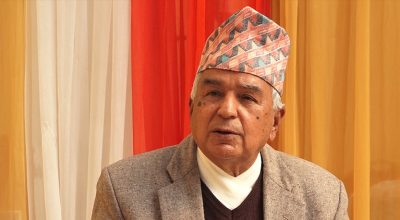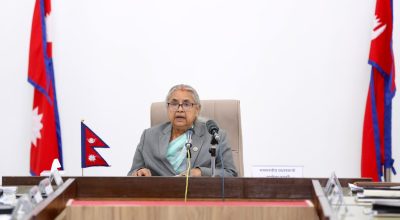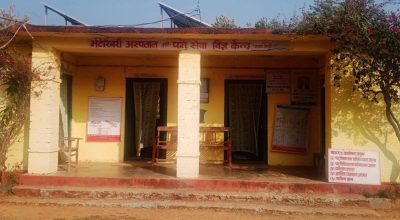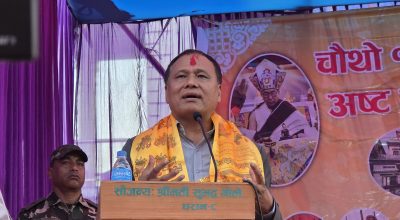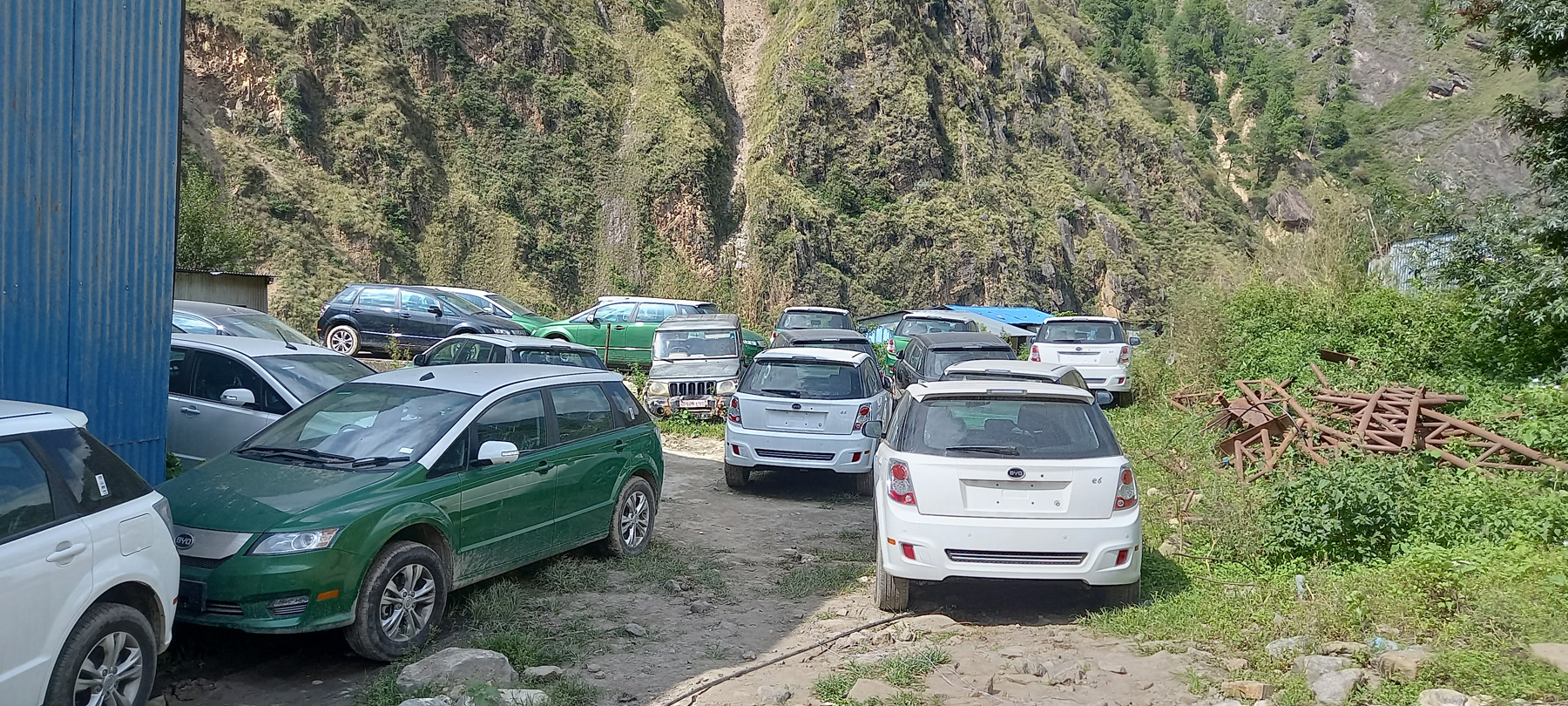
Hemanta Joshi/RSS
Kathmandu, Jan 27: Most of the countries around the world are on their way for the wider adoption of electric vehicles (EVs). Some of the reasons for promoting EVs are to reduce emission and lower the use of petroleum products, both of the factors responsible for climate change.
Nepal is also bracing for the adoption of EVs. With the aim of increasing energy consumption within and lowering the use of petroleum products, it has made policies relating to EVs, which are considered to be positive.
It has fixed low tax on the import of EVs as compared to fuel vehicles, thus boosting their number in the past few years. However, there is a setback; there lacks charging stations, and related infrastructures.
The government through the budget for the fiscal year, 2022/23 has provisioned that petrol and diesel-dependent private and public vehicles in the Kathmandu Valley will be gradually replaced with EVs.
Similarly, the Nepal Electricity Authority (NEA), the state-owned generator and distributor of electric power of the country, will construct and operate charging stations to encourage the use of EVs. Private sector will be encouraged to replace existing petrol stations with electric charging stations, and public sector will use only EVs.
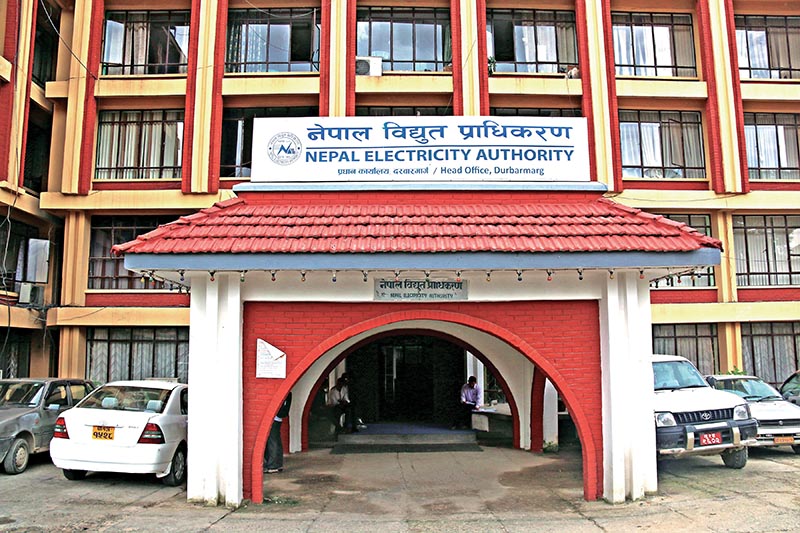
Although EV companies and the NEA are constructing charging stations, the number is not enough, said NADA Automobiles Association of Nepal President Dhruba Thapa. To increase the use of EVs, preparing required number of technicians for building infrastructures and a repair of charging stations is a main challenge, he viewed.
“In most cases, both EV companies and the NEA are building charging stations. But, the number is not enough. There are charging stations in only main cities. They should be expanded to villages too,” he said.
Private sector alone cannot build charging stations. So, the government should also take initiatives, he suggested.
Workforce for maintaining and repairing EVs has been almost ready, he said. Private sector is efficient in assembling, maintaining and repairing EVs within the country. But, the government has yet to provide assistance at policy level, he complained.
“Private sector is ready to produce EVs within the country. But for this, a clear policy is required. It requires big investments to open industries to produce EVs. So, it requires policy stability.”
The trend of a change in policy each time when there is a government change has discouraged private sector, he said. He referred to the amendment of tax provision relating to EVs four times in a span of two years. Similarly, private sector is not clear on what size the Nepali bazaar get in the use of EVs.
Lately, consumers have been taking interest in EVs, said Chief Executive Officer of the Sipradi Trading Pvt. Ltd. Rajan Babu Shrestha, also President of the Committee on Electric Vehicle under the NADA.
Now, the import and sales of EVs is very good, and the market comments are also good, he said. “At present, consumers’ acceptance is good. The main issue was ‘range anxiety’. Customers were not aware about how EVs performed and what is their range? Now most of them have understood it,” he said.
Another reason of customers’ attraction to EVs is low operating cost. “There are charging stations at most of places in the country. Its operation cost is also low. Banks and financial institutions easily provide loans to purchase it. So, customers are attracted to it.”
Not only in city areas and main highways, EVs can be charged at home, which has fueled customers’ attraction to it, he viewed.
Most of the users get their EVs charged at home. Hardly 40 percent of charging stations built by EV companies are in use. The number of charging stations is increasing following an increment in the number of EVs, he said.
The doubt on whether EVs are also comfortable and usable on a long route is also being gradually eliminated, he said. “The main concern about a long route is whether there are charging stations at every interval. Now, a fast charging station is being built at a distance of each 60 kilometers on highways. The users are required to take information about where or not there are charging stations along the route,” he said.
EVs are expensive as compared to fuel vehicles. EV battery is costlier though, he said. Some light EVs are cost effective as taxes have been now waived. But, EVs above 100 kilowatts are costlier, he said.
The NEA is constructing 51 charging stations in various 32 places in the country with the assistance of Rs 380 million by the Asian Development Bank. Such charging stations will be at a distance of every 60 to 80 kilometers along main highways. The Kathmandu Valley has seen the construction of charging stations in seven places (Balkhu, Sajha Yatayat Office, NEA Office in Ratnapark, Tribhuvan International Airport, New Bus Park and Nepal Police Club).
Similarly, there are two charging stations under construction in Birtamod, Jhapa, one each in Damak (Jhapa), Inaruwa (Sunsari), Biratnagar Bus Park (Morang), Police Petrol Pump (Saptari), Belaka (Udayapur), the Area Police Office in Nijgadh, Makawanpur, Hariwan Refresh Center (Sarlahi), Buspark and Muglin (Chitwan), the Area Police Office in Dhading, Banepa (Kavrepalanchok), Tourist Bus Park and Lake Side in Pokhara, Bus Park and Hawa Ghar in Nuwakot, Sindhuligadhi Bus Park (Sindhuli) and Khurkot Resort Centre.
Likewise, there is a charging station under-construction in the Area Police Office in Bardibas in Mahottari, the Lumbini Province Police Office in Butwal, the Area Police Office in Bardaghat in Nawalparasi, the Area Police Office in Gorusinghe in Kapilvastu, Lamahi Bus Park (Dang), Nepal APF School in Kohalpur in Banke, New Bus Park (Surkhet), Bhairahawa Bus Park (Rupandehi), Armed Police Force Baijanath Brigade (Kailali) and Shaileshwori Armed Police Force (Kanchanpur).
Apart from that, an agreement has been reached with APF and Nepal Police to construct charging stations in other places, said NEA’s Spokesperson Suresh Bhattarai.
“Besides NEA constructing charging stations at various 51 places across the country, APF and Nepal Police have also undertaken the project.”
Over five months ago, the NEA and APF reached an agreement to construct charging stations. APF has been commissioned to construct charging stations at 15 places across the country (in two places by replacing petrol stations being operated by the Armed Police Welfare Service Centre).
Similarly, Nepal Police will construct charging stations at 25 places. The stations will be built at 16 new paces, at five places by replacing five petrol stations being run by the Police Welfare Fund and at four places where construction of four petrol stations has been proposed.
A 142 kilowatts charger will be set up at each charging station, while there will be 60 kilowatts DC and 22 kilowatts AC chargers installed. A 50-kVA transformer will be set up at each charging station. Customers can pay digitally through QR code or mobile banking. EV charging station management software will be put at the data centre of the NEA. All charging stations in the country will be controlled from Kathmandu, the federal capital.
The NEA through the Electricity Distribution Bylaw, 2078 issued in the Nepali month of Magh, 2078 BS has granted permission to private housing, offices, firms, companies and institutions to set up charging stations. With the implementation of the by-law, users can set up charging stations at home. It is cost effective to get EVs charged at home. According to a NEA study, the cost of riding an electric car per kilometer is 70 paisa, 80 paisa for a SUV, 90 paisa for a microbus, and Rs 1.20 for a bus.
According to data with the Department of Customs, 1,353 EVs worth over Rs 3.82 billion were imported until December 15 of the current fiscal year, 2022/23.
Of them, 1,320 are with 100 kilowatts, and remaining 33 below. In the previous fiscal year, 2021/22, 1,807 EVs were imported, said the Department.
Similarly, 261 EVs were imported in the FY, 2020/21, 575 in the FY, 2019/20, and 4,745 in the FY, 2018/19. Main suppliers of EVs to Nepal are India, China, Indonesia and South Korea. [Translated by Pritam Bhattarai/RSS]







